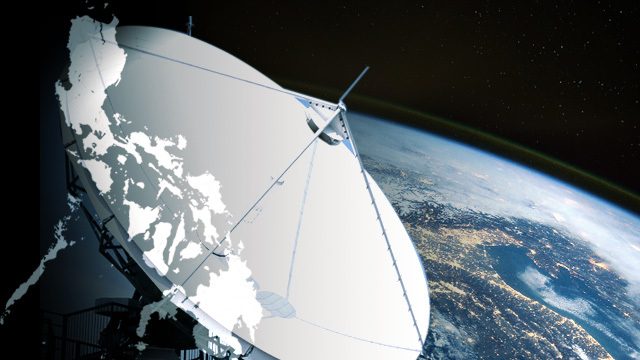SUMMARY
This is AI generated summarization, which may have errors. For context, always refer to the full article.

MANILA, Philippines (3rd UPDATE) – Legislators are backing a bill that would create the Philippine Space Agency (PhilSA), which would be in charge of developing and promoting the country’s national space program.
On Tuesday, December 4, the House of Representatives approved House Bill (HB) 8541 on 3rd and final reading with a vote of 207-0-0. Its Senate version has passed the committee level.
Under HB 8541, the PhilSA would become the central government agency overseeing all national issues and activities related to “space science and technology application,” which the bill describes to be the “scientific principles and their applications to space science, engineering, and other allied fields.”
The PhilSA would be an agency under the Department of Science and Technology (DOST).
The measure also proposes a framework on space policy that focuses on 6 key development areas:
- National security and development
- Hazard management and climate studies
- Space research and development
- Space industry capacity building
- Space education and awareness
- International cooperation
Several agencies are currently handling functions that are usually done by space agencies, such as disaster risk management (National Disaster Risk Reduction and Management Council), astronomical science studies (Philippine Atmospheric, Geophysical, and Astronomical Services Administration), and mapping (National Mapping and Resource Information Agency).
At present, the National SPACE Development Program is handling the “frameworks and foundations” for a possible future Philippine space agency. The program is funded by DOST and monitored by the DOST-Philippine Council for Industry and Emerging Technology Research and Development.
The Philippine Scientific Earth Observation Microsatellite, meanwhile, is a collaboration between the University of the Philippines Diliman, the DOST-Advanced Science and Technology Institute, Hokkaido University, and Tohoku University.
Despite not having a central space agency, the Philippines has made advances in space science.
The second Philippine-made microsatellite, Diwata-2, was launched into space from the Tanegashima Space Center last October 29. Like its predecessor Diwata-1, Diwata-2 is an Earth-observing microsatellite capable of capturing images of Earth for environmental assessment. Diwata-2 will help monitor the extent of damage from disasters. – Rappler.com
Editor’s Note: An earlier version of this story stated that it is the National SPACE Development Program which is a collaboration between UP Diliman, DOST-ASTI, Hokkaido University, and Tohoku University. This has been corrected to the Philippine Scientific Earth Observation Microsatellite.
Add a comment
How does this make you feel?
There are no comments yet. Add your comment to start the conversation.